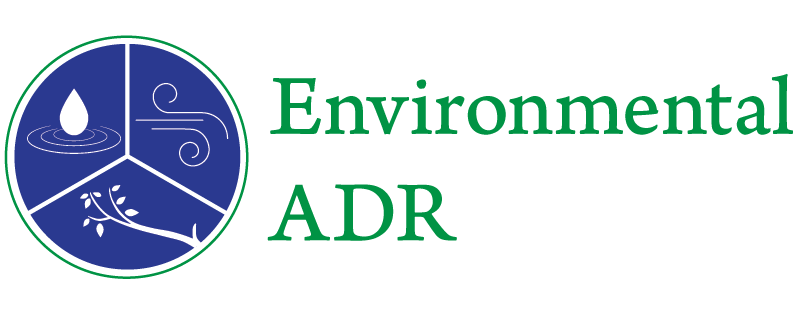 Call it “rough justice” if you prefer. This is yet another reason why many lawsuits are well suited to the mediation process. In environmental cases, for example, we cannot “rewind the tape” to see exactly when and how much of a particular contaminant was released into the environment, and by whom. Similarly, we cannot perfectly dissect the subsurface beneath our feet (like cutting a slice of birthday cake) and see the precise soil and groundwater pathways that a chemical release traveled over the course of months and years, vertically and horizontally. The best we can do is to drill for samples at various locations and depths where we expect the contamination to be found, to study the resulting evidence of the subsurface contours and the chemical concentrations found at each location. From this data we “reconstruct” what we believe most likely happened many months and years ago, where the chemicals were released and where they are now located, how we can most efficiently and cost effectively clean them up, and what will happen to the affected media if the problem is not corrected.
Call it “rough justice” if you prefer. This is yet another reason why many lawsuits are well suited to the mediation process. In environmental cases, for example, we cannot “rewind the tape” to see exactly when and how much of a particular contaminant was released into the environment, and by whom. Similarly, we cannot perfectly dissect the subsurface beneath our feet (like cutting a slice of birthday cake) and see the precise soil and groundwater pathways that a chemical release traveled over the course of months and years, vertically and horizontally. The best we can do is to drill for samples at various locations and depths where we expect the contamination to be found, to study the resulting evidence of the subsurface contours and the chemical concentrations found at each location. From this data we “reconstruct” what we believe most likely happened many months and years ago, where the chemicals were released and where they are now located, how we can most efficiently and cost effectively clean them up, and what will happen to the affected media if the problem is not corrected.
We cannot go back in time. Therefore, we must draw informed yet imperfect inferences from all the evidence we can find.
This is where environmental mediation comes in. With this data in hand, as evaluated by experienced professionals working for the disputants, we can vet the various studies presented though informed and professional debate. From these studies, peer review and discussion, we draw rational inferences from which we can answer the key legal and scientific questions presented, including: where is the contamination found and in what concentrations, what methods are available to clean it up it to required levels, at what cost and, ultimately, who should bear the costs and in what proportion. [Read more…]

 There are no universal rules governing mediation agreements.
There are no universal rules governing mediation agreements. We live in a world of ever-growing concern about environmental harm to our health and well-being. As the science of detection improves, so does our awareness of large-scale releases of contaminants into the air, water and soil, which can affect large numbers of people and their property.
We live in a world of ever-growing concern about environmental harm to our health and well-being. As the science of detection improves, so does our awareness of large-scale releases of contaminants into the air, water and soil, which can affect large numbers of people and their property.
 Recent decades have seen a dramatic rise in the use of Alternative Dispute Resolution (ADR) proceedings as a means to evaluate claims and compensate qualified parties in a mass claims settings. These cases can arise from settlements in class or mass actions filed in court or as government-originated programs designed to compensate victims of a military or environmental disaster.
Recent decades have seen a dramatic rise in the use of Alternative Dispute Resolution (ADR) proceedings as a means to evaluate claims and compensate qualified parties in a mass claims settings. These cases can arise from settlements in class or mass actions filed in court or as government-originated programs designed to compensate victims of a military or environmental disaster. What Is the Added Value of the Mediator In Getting Cases Settled? It is important to note that mediation is a tool that can help in some but not all cases. Lawyers and clients settle cases everyday without the assistance of a mediator. Clearly, mediation is not warranted in those cases and is not intended to replace what lawyers do well on their own. In fact, most cases reach resolution in this way, and that is a very good thing.
What Is the Added Value of the Mediator In Getting Cases Settled? It is important to note that mediation is a tool that can help in some but not all cases. Lawyers and clients settle cases everyday without the assistance of a mediator. Clearly, mediation is not warranted in those cases and is not intended to replace what lawyers do well on their own. In fact, most cases reach resolution in this way, and that is a very good thing.
